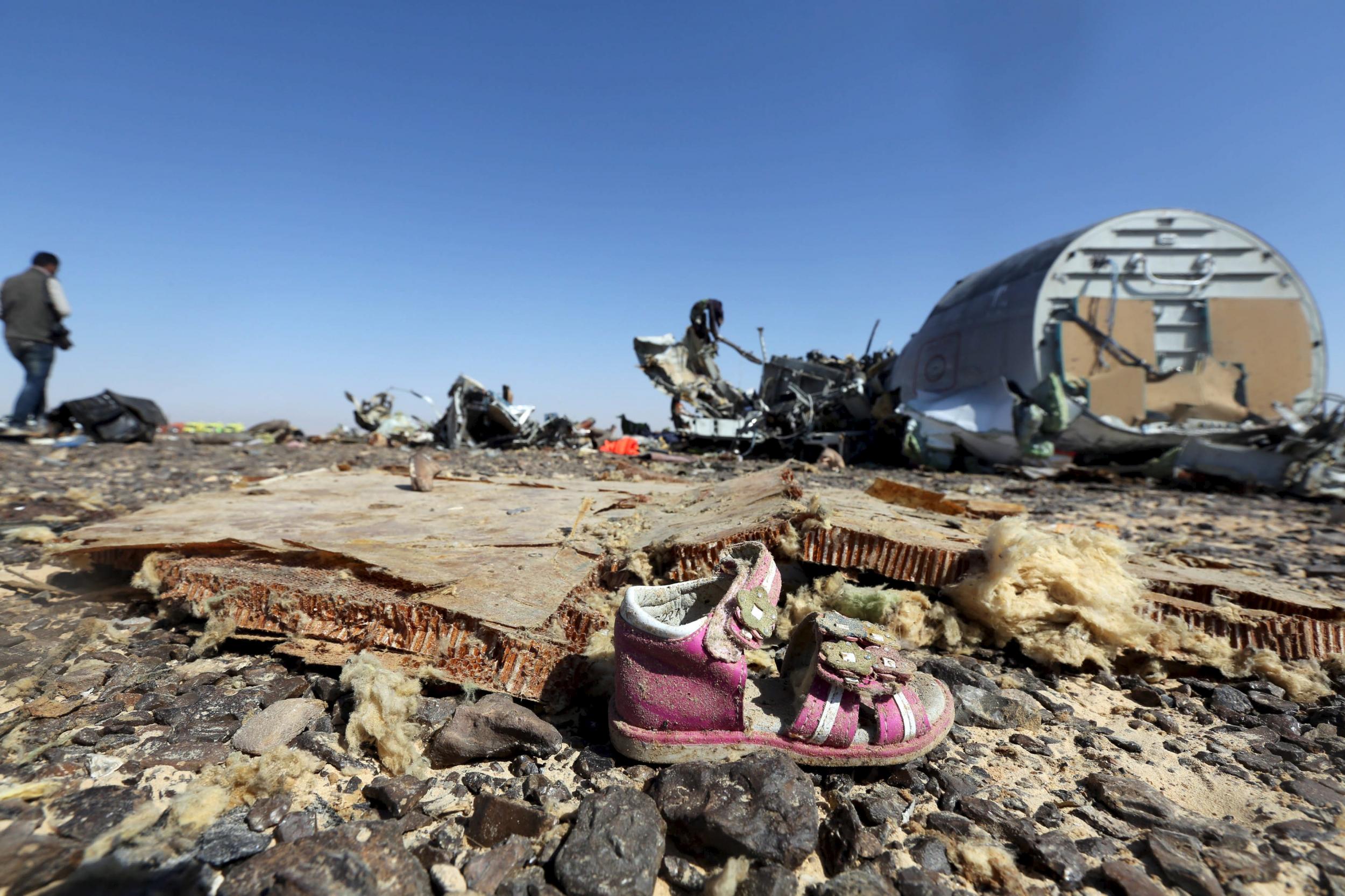Russian plane crash: Bomb that brought down jet 'likely fitted with a timer and carried on board by airport staff'
'The terrorists’ calculations proved to be accurate - the bomb exploded as the plane gained altitude'

Your support helps us to tell the story
From reproductive rights to climate change to Big Tech, The Independent is on the ground when the story is developing. Whether it's investigating the financials of Elon Musk's pro-Trump PAC or producing our latest documentary, 'The A Word', which shines a light on the American women fighting for reproductive rights, we know how important it is to parse out the facts from the messaging.
At such a critical moment in US history, we need reporters on the ground. Your donation allows us to keep sending journalists to speak to both sides of the story.
The Independent is trusted by Americans across the entire political spectrum. And unlike many other quality news outlets, we choose not to lock Americans out of our reporting and analysis with paywalls. We believe quality journalism should be available to everyone, paid for by those who can afford it.
Your support makes all the difference.The bomb that sent Russia’s Metrojet airliner crashing into the Egyptian desert and killing all 224 people on board last month was likely fitted with a timer, a source close to the investigation has said.
The men who planted the bomb were likely aware of the plane’s take-off time from Sharm el-Sheikh airport, where explosives are thought to have been carried onto the plane by airport staff once the exact time of the plane’s departure became known, the source told Interfax.
“The terrorists’ calculations proved to be accurate. The bomb exploded as the plane gained altitude,” the source said. “From the examinations, experts have come to the conclusion that the attack on the plane took place with the use of explosives usually used in military shells and bombs. It was probably of the plastic variety.”
The presence of a bomb on board the plane was finally confirmed by Russia on 16 November, after days of scepticism from Russian officials who remained dubious that explosives planted by terrorists had brought down the plane. A meeting between President Vladimir Putin and Alexander Bornikov, head of Russia’s FSB security services, saw Mr Bornikov brand the crash as “unequivocally a terrorist act”.
Mr Putin has pledged revenge against those responsible for the plane crash, telling the Russian nation in a televised address that “we will search for them wherever they may be hiding. We will find them in any corner of the planet and punish them”.
Since then, two members of the ground crew at Sharm el Sheikh airport have been detained by Egyptian authorities in connection with planting the bomb. A security official at the airport told Reuters that “[of the] 17 people being held, two of them are suspected of helping whoever planted the bomb on the plane at Sharm el Sheik airport”. The airport’s CCTV footage captures a man at the airport passing a suitcase to another man loading luggage onto the airliner.
France and Russia have since coordinate military airstrikes on Isis strongholds in Raqqa and Der ez Zor, while Mr Putin has issued instructions to a Russian missile cruiser stationed in the Mediterranean Sea to coordinate with French military forces on joint operations against Isis in Syria.
Despite confirmation from Russia of a bomb on the plane, which came three days after coordinated shootings and bombings in Paris that left 129 dead, Egypt has yet to confirm Moscow’s conclusion.
Join our commenting forum
Join thought-provoking conversations, follow other Independent readers and see their replies
Comments